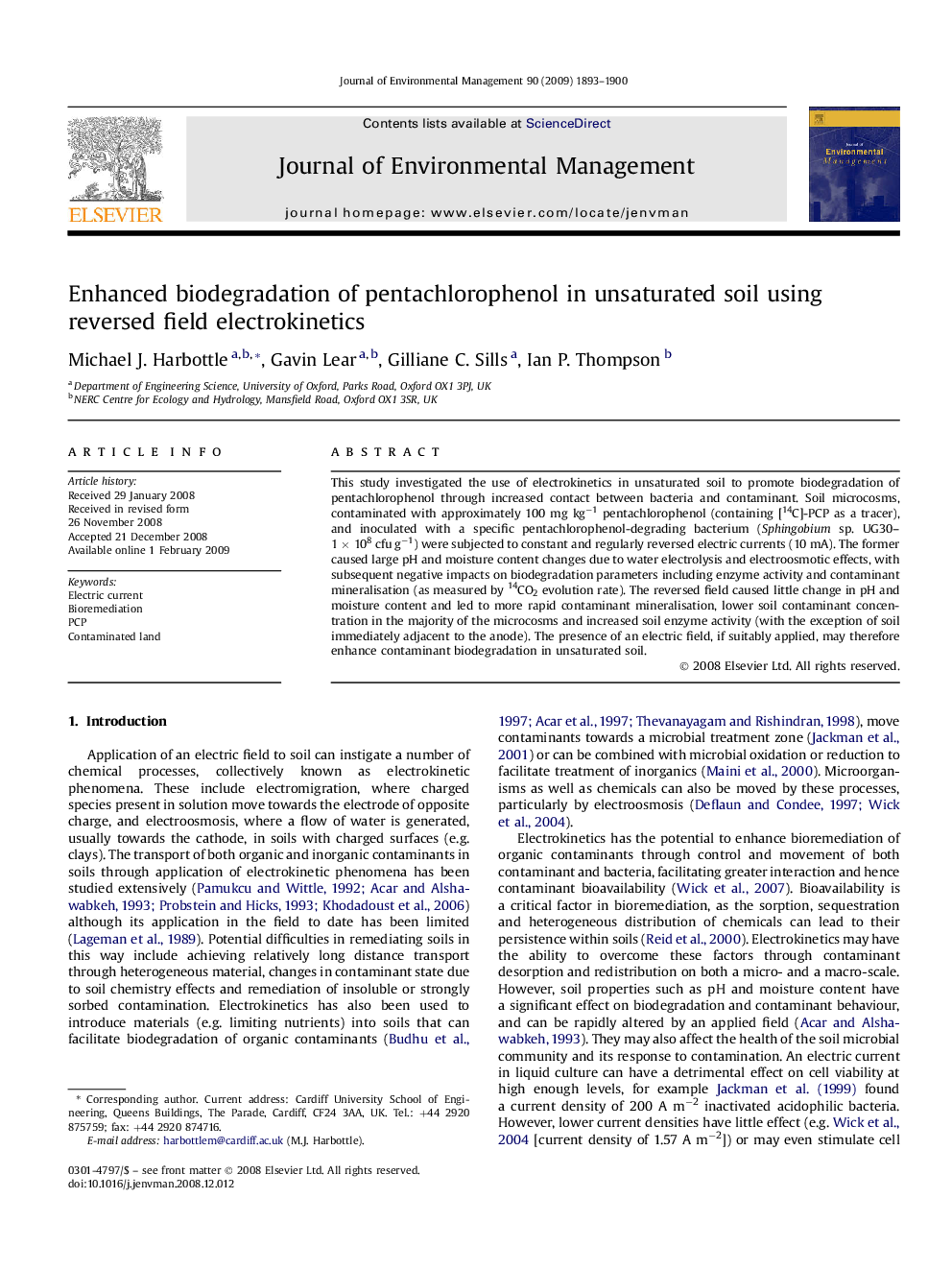| Article ID | Journal | Published Year | Pages | File Type |
|---|---|---|---|---|
| 1057383 | Journal of Environmental Management | 2009 | 8 Pages |
This study investigated the use of electrokinetics in unsaturated soil to promote biodegradation of pentachlorophenol through increased contact between bacteria and contaminant. Soil microcosms, contaminated with approximately 100 mg kg−1 pentachlorophenol (containing [14C]-PCP as a tracer), and inoculated with a specific pentachlorophenol-degrading bacterium (Sphingobium sp. UG30–1 × 108 cfu g−1) were subjected to constant and regularly reversed electric currents (10 mA). The former caused large pH and moisture content changes due to water electrolysis and electroosmotic effects, with subsequent negative impacts on biodegradation parameters including enzyme activity and contaminant mineralisation (as measured by 14CO2 evolution rate). The reversed field caused little change in pH and moisture content and led to more rapid contaminant mineralisation, lower soil contaminant concentration in the majority of the microcosms and increased soil enzyme activity (with the exception of soil immediately adjacent to the anode). The presence of an electric field, if suitably applied, may therefore enhance contaminant biodegradation in unsaturated soil.
